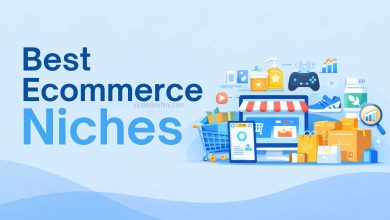How To Launch a Podcast : Make Money Online : Comprehensive Guide 2024
How To Launch a Podcast : Podcasting has emerged as one of the most popular mediums for content consumption, offering a platform for individuals to share their stories, expertise, and insights with a global audience. As the podcasting landscape continues to grow, many aspiring creators are discovering that launching a podcast can also be a viable way to make money online.
Table of Contents
This comprehensive guide will walk you through the essential steps to launch a successful podcast, from initial planning to monetization strategies.
Understanding the Podcasting Landscape

Before diving into the technical aspects of podcasting, it’s crucial to understand the medium and its potential. Podcasts are audio programs that can be streamed or downloaded, allowing listeners to consume content on the go. The appeal of podcasts lies in their versatility; they can cover a wide range of topics, from business and technology to lifestyle and entertainment.
1. The Growth of Podcasting
The podcasting industry has seen exponential growth over the past few years. According to recent statistics, over 400 million people worldwide listen to podcasts, with the number of podcasts exceeding 2 million. This growth presents a significant opportunity for creators to tap into a large and engaged audience.
2. Types of Podcasts
Podcasts can be categorized into various formats, each offering a unique way to engage with audiences. Some popular formats include:
- Interview Podcasts: Featuring discussions with guests who are experts in their field or have compelling stories.
- Solo Podcasts: Hosted by a single individual who shares their thoughts, experiences, or knowledge on a specific topic.
- Panel Podcasts: Involving multiple hosts or guests discussing a particular subject.
- Narrative Podcasts: Telling a story or exploring a theme over multiple episodes, often with scripted content.
- Educational Podcasts: Providing valuable information or training on a specific subject.
Choosing the right format for your podcast will depend on your goals, interests, and target audience.
Defining Your Podcast Concept
Once you have a grasp of the podcasting landscape, the next step is to define your podcast concept. A well-defined concept is crucial for attracting and retaining listeners.
1. Identifying Your Niche
The first step in defining your podcast concept is to identify your niche. A niche is a specific area of interest or expertise that your podcast will focus on. Consider the following when selecting a niche:
- Your Passion: Choose a topic that genuinely interests you. Passion will drive your motivation and creativity.
- Market Demand: Research the existing podcasts in your chosen niche. Look for gaps in the market where your unique perspective or expertise can fill a need.
- Target Audience: Define your target audience based on demographics, interests, and listening habits. Understanding your audience will guide your content creation and marketing strategies.
2. Crafting a Unique Selling Proposition (USP)
Your podcast’s Unique Selling Proposition (USP) differentiates it from others in the market. Consider what makes your podcast special and why listeners should tune in. Your USP could be your unique perspective, a specific format, or a particular storytelling style.
3. Creating a Compelling Podcast Name
A catchy and memorable podcast name is essential for attracting listeners. Your podcast name should reflect your content and resonate with your target audience. Consider the following tips when choosing a name:
- Keep it short and memorable.
- Use keywords related to your niche.
- Avoid complex spelling or pronunciation.
Planning Your Podcast Content

With your podcast concept in place, it’s time to plan your content. A well-structured content plan will help you stay organized and ensure consistent delivery.
1. Episode Format and Structure
Decide on the format and structure of your episodes. Consider the following elements:
- Length: Determine the ideal length for your episodes based on your audience’s preferences. Episodes can range from 15 minutes to over an hour.
- Frequency: Establish a release schedule for your episodes, whether weekly, bi-weekly, or monthly.
- Content Outline: Create an outline for each episode, including key points, segments, and any guest appearances.
2. Research and Scripting
Conduct thorough research on your chosen topics to provide valuable and accurate information to your listeners. Depending on your format, you may choose to script your episodes or outline key points for discussion. Ensure that your content is engaging, informative, and relevant to your audience.
3. Guest Selection and Interviews
If your podcast includes interviews, consider potential guests who can add value to your content. Research their backgrounds, expertise, and previous appearances on other podcasts.
Also Read : How to Become a Virtual Assistant
When inviting guests, personalize your outreach and explain why you believe they would be a great fit for your show.
Setting Up Your Podcasting Equipment
A well-produced podcast requires quality equipment to ensure clear audio and a professional sound. Here’s a breakdown of essential equipment needed for podcasting.
1. Microphone
Investing in a good-quality microphone is crucial for producing clear audio. Consider the following options:
- USB Microphones: Ideal for beginners, these plug directly into your computer and are user-friendly. Examples include the Blue Yeti and Audio-Technica ATR2100x.
- XLR Microphones: These require an audio interface or mixer but offer higher sound quality. Popular choices include the Shure SM7B and Rode NT1.
2. Headphones
A good pair of headphones will help you monitor your audio quality while recording and editing. Look for closed-back headphones that provide accurate sound reproduction. The Audio-Technica ATH-M50x is a popular choice among podcasters.
3. Recording and Editing Software
Choose recording and editing software that suits your needs and technical expertise. Some popular options include:
- Audacity: A free, open-source audio editing software that is beginner-friendly.
- Adobe Audition: A professional audio editing software with advanced features for those willing to invest.
- GarageBand: A user-friendly option for Mac users, perfect for beginners.
4. Hosting Platform
Select a podcast hosting platform to store and distribute your episodes. Popular hosting platforms include:
- Libsyn: Offers reliable hosting and analytics but comes with a monthly fee.
- Podbean: Provides free and paid plans with user-friendly features.
- Anchor: A free hosting platform that allows easy monetization and distribution to multiple platforms.
Recording Your First Episode
Now that you have your equipment set up and content planned, it’s time to record your first episode. Follow these steps for a smooth recording process.
1. Setting Up Your Recording Environment
Choose a quiet, distraction-free space for recording your podcast. Consider using soundproofing materials, such as foam panels or blankets, to minimize background noise and improve sound quality.
2. Recording Tips
- Do a Test Run: Conduct a short test recording to ensure your equipment is working correctly and that your audio levels are balanced.
- Speak Clearly: Maintain a steady pace and articulate your words clearly.
- Stay Relaxed: Take deep breaths to calm any nerves and maintain a natural conversational tone.
5.3. Editing Your Episode
After recording, edit your episode to remove any mistakes, pauses, or background noise. Use your chosen editing software to enhance audio quality, adjust volume levels, and add music or sound effects if desired.
Branding and Marketing Your Podcast

A strong brand and marketing strategy will help you reach your target audience and grow your listener base.
1. Creating Cover Art
Design eye-catching cover art for your podcast that reflects your brand and content. Use tools like Canva or hire a graphic designer to create professional-quality artwork. Your cover art should meet the required specifications for podcast directories (usually a square format, at least 1400 x 1400 pixels).
2. Developing a Website
Creating a dedicated website for your podcast can enhance your online presence and provide a platform for additional content, such as show notes, transcripts, and blog posts. Use website builders like WordPress, Squarespace, or Wix to create an attractive and user-friendly site.
3. Promoting Your Podcast
Leverage social media platforms to promote your podcast and engage with your audience. Consider the following strategies:
- Create Social Media Accounts: Establish accounts on platforms like Instagram, Twitter, and Facebook to share episode updates and engage with listeners.
- Join Podcasting Communities: Participate in online communities and forums to connect with other podcasters and promote your show.
- Cross-Promote with Other Podcasters: Collaborate with other podcasters in your niche for guest appearances or shout-outs.
4. Utilizing Email Marketing
Build an email list to keep your listeners informed about new episodes, behind-the-scenes content, and exclusive offers. Use email marketing tools like Mailchimp or ConvertKit to manage your list and send newsletters.
Monetizing Your Podcast
Once you’ve established your podcast and built an audience, it’s time to explore monetization options. There are several ways to generate income from your podcast.
1. Sponsorships and Advertisements
Partnering with brands for sponsorships and advertisements is one of the most common ways to monetize a podcast. Consider the following tips:
- Identify Relevant Sponsors: Look for brands that align with your podcast’s niche and target audience.
- Create a Media Kit: Develop a media kit outlining your podcast’s audience demographics, download statistics, and potential advertising opportunities.
- Negotiate Rates: When approaching sponsors, be prepared to discuss rates and deliverables, such as ad placements and social media promotion.
2. Listener Donations and Crowdfunding
Consider setting up a donation system through platforms like Patreon or Buy Me a Coffee. This allows your listeners to support your podcast financially in exchange for exclusive content, merchandise, or perks.
3. Affiliate Marketing
Promote products or services related to your podcast’s niche through affiliate marketing. Include affiliate links in your show notes, website, or social media.
Buy Now : Online Jobs Mastery – Hand Book
When listeners make a purchase through your link, you’ll earn a commission.
4. Merchandise Sales
Create and sell merchandise related to your podcast, such as branded apparel, mugs, or stickers. Use platforms like Teespring or Redbubble to design and sell products without upfront costs.
5. Online Courses or Workshops
If you have expertise in a specific area, consider creating online courses or workshops that your audience can purchase. Use platforms like Teachable or Udemy to host your courses.
Measuring Your Podcast’s Success
To ensure the long-term success of your podcast, it’s essential to track your performance and make data-driven decisions.
1. Analyzing Metrics
Monitor key metrics to assess your podcast’s performance, such as:
- Downloads and Listens: Track the number of downloads and listens for each episode to gauge audience engagement.
- Listener Retention: Analyze listener retention rates to understand how well your episodes hold audience attention.
- Social Media Engagement: Measure engagement on your social media posts to determine the effectiveness of your marketing efforts.
2. Gathering Listener Feedback
Encourage listener feedback through surveys, social media, or email. Understanding your audience’s preferences will help you tailor your content and improve your podcast.
How To Launch a podcast : Conclusion

Launching a podcast can be an exciting and rewarding venture that allows you to share your passion, connect with an audience, and make money online. By following the steps outlined in this guide, you’ll be well-equipped to create a successful podcast that resonates with listeners and opens up monetization opportunities. Remember, the key to success lies in consistency, creativity, and a genuine connection with your audience. Happy podcasting!
Keywords : How To Launch a podcast 3 – How To Launch a Podcast 2024 – How To Launch a Podcast 2025 , How To Launch a Podcast in India , How To Launch a Podcast in Simple steps , How To Launch a Podcast steps



